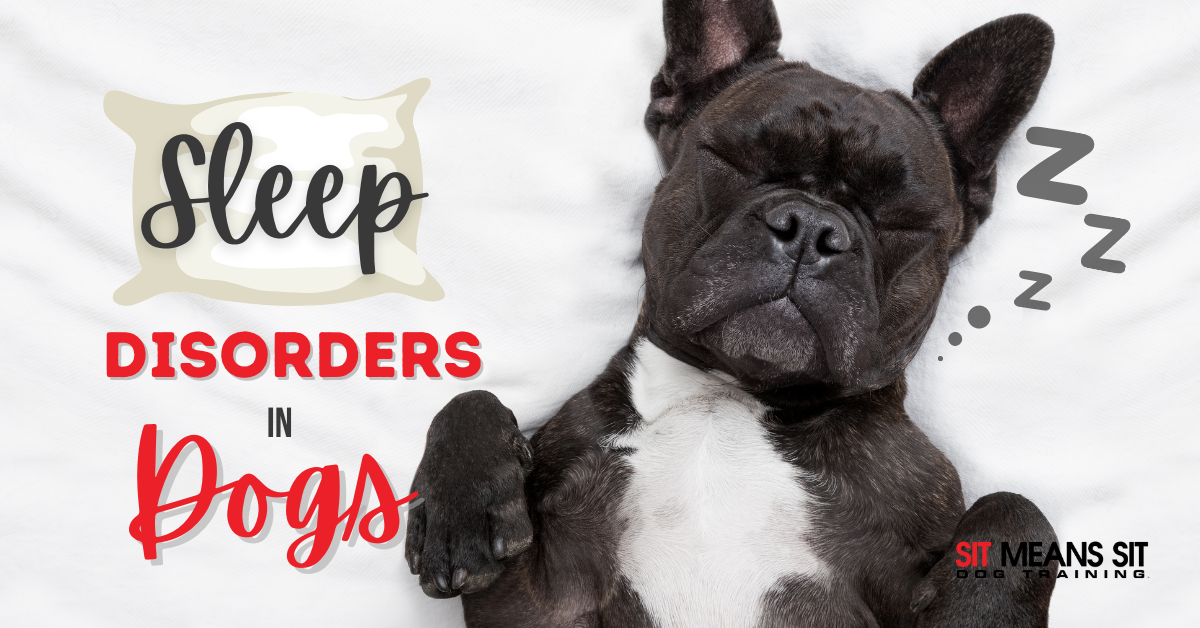
Sleep Disorders in Dogs
Most dogs tend to sleep a good amount of time, around 12-14 hours a day. Just like their pet parents, they need to be well-rested in order to function and maintain health. But, did you know that some pups actually have sleep disorders that can cause abnormal patterns of slumber? Here are some common sleep disorders that may be affecting your canine companion and how to help treat them:
Insomnia
Canine insomnia is rare, but it can indicate that there are other health problems being observed. Insomnia can be contributed by health issues involving frequent urination (i.e. kidney disease), pain (i.e. arthritis), or itching (i.e. fleas). Senior canines may be more adept to Insomnia as slower cognitive functions can disrupt sleeping patterns. Dogs that have pent-up or frequent feelings of anxiety can also develop Insomnia.
A trip to the veterinarian can diagnose what exactly is causing your pooch’s Insomnia, especially with your observations of their behaviors. They will be able to prescribe a treatment plan to help with any underlying issues and Insomnia.
You may also want to try a few at-home treatments, along with your veterinarian’s advisory, to help treat sleep deprivation. Be sure to get enough playtime/physical activity in, particularly before bedtime, a comfortable bed (orthopedic), and create a safe and sleep-inducing nightly routine (i.e. turn off all electronics, block outside noise with white noise, lock away toys, etc.).
Narcolepsy
Narcolepsy is usually caused by a genetic disorder of low levels of hypocretin in which young dogs are mainly the sufferers. Breeds affected by this genetic disorder are Poodles, Labrador Retrievers, and Doberman Pinschers. Narcolepsy is a sleep disorder that affects the nervous system causing the sudden collapse of sleep. This can occur at random times or after a moment of excitement, like playing with other dogs.
Narcolepsy is not a painful or harmful sleep disorder and doesn’t have a cure, but vets can find ways to minimize triggers. Medications may also be available to manage the disorder’s frequency.
REM Behavior Disorder
REM Behavior Disorder is the cause of physical activity in sleep, like when it appears your pooch is running to chase a ball! This disorder can be dangerous in some cases if the physical activity causes harm, such as running into walls. Dogs can awake normally out of this slumber.
Vets can treat this disorder, after diagnosis, with clonazepam or other plans they see fit in order to help control physical activity when asleep.
Sleep Apnea
Sleep Apnea, like Insomnia, is rare in dogs. But, dogs who are obese or brachycephalic breeds can be prone to Sleep Apnea. Sleep interruptions are caused by the airway temporarily closing, usually due to excess fat or respiratory issues. These interruptions cause chronic snoring, sluggishness, and restless days/nights.
Treatments generally include the use of steam humidifiers, surgery, and weight loss.
Dogs unfortunately can have sleep disorders that affect their daily lives and happiness. No dog parent wants to see their adorable furball suffer due to a lack of healthy sleep, which is why you should see your vet ASAP if you observe any unusual sleep behaviors or patterns.
